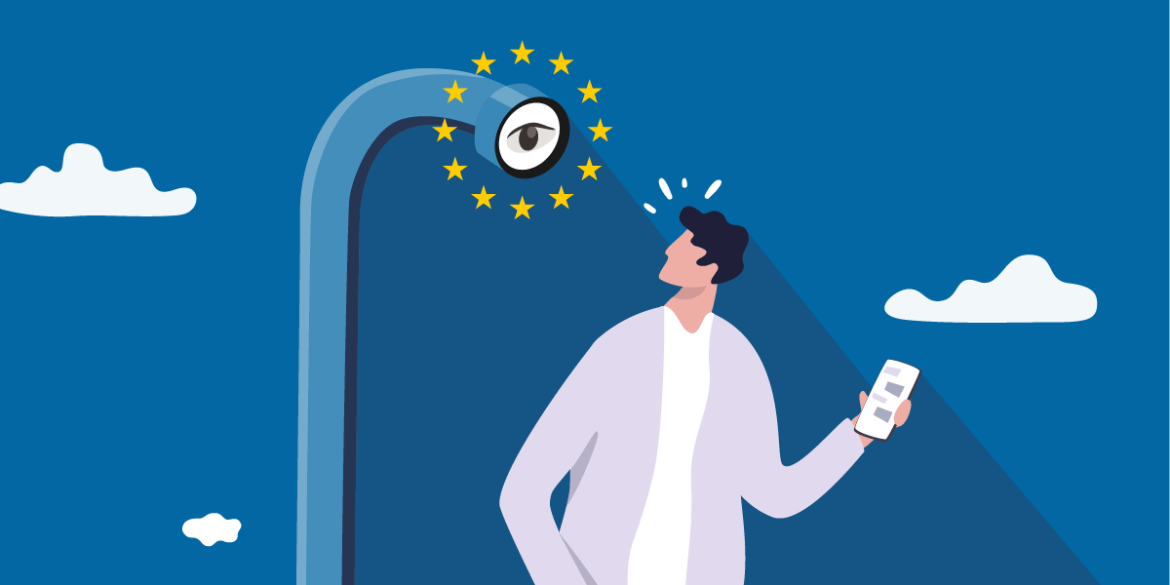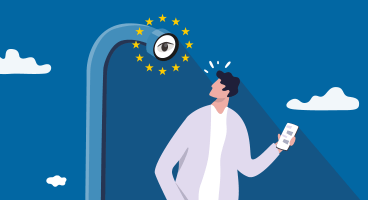noyb wint van de Europese Commissie: De EDPS (Europese Toezichthouder voor gegevensbescherming) heeft een besluit uitgevaardigd waarin wordt vastgesteld dat de Europese Commissie illegaal reclame heeft gericht op burgers door gebruik te maken van "gevoelige" persoonlijke gegevens over hun politieke opvattingen.

- Beslissing door de EDPS
- Klacht ingediend bij de EDPS in 2023
- Gerelateerde noyb-klachten in Duitsland ("Target Leaks")
EU-Commissie probeerde politieke standpunten in Nederland te beïnvloeden. In de controversiële strijd over de zwaar bekritiseerde chatcontroleverordening (een wetsvoorstel van de EU dat alle versleutelde online communicatie zou kunnen ondermijnen zodat autoriteiten online chats kunnen lezen), heeft de Europese Commissie Nederland aangewezen als een lidstaat die ze politiek wilde beïnvloeden. In een poging om de standpunten in Nederland te "spiegelen", ging de Commissie naar X/Twitter en plaatste indirecte berichten om deze verordening te promoten.
Politieke beïnvloeding op X/Twitter. De Europese Commissie postte echter niet alleen deze politieke berichten, maar richtte zich ook op gebruikers die niet geïnteresseerd waren in trefwoorden als: #Qatargate, brexit, Marine Le Pen, Alternative für Deutschland, Vox, christelijk, christen-fobie of Giorgia Meloni. Het was duidelijk de bedoeling om zich alleen te richten op politiek liberale of linkse gebruikers, maar niet op conservatieve of rechtse gebruikers. Adverteerders gebruiken vaak zogenaamde "proxy data" (dus gegevens die nauw verbonden zijn met politiek denken) om te targeten op politieke standpunten. Hiermee heeft de Europese Commissie duidelijk de aanzet gegeven tot het verwerken van persoonlijke gegevens van EU-burgers om hen te targeten met advertenties.
Felix Mikolasch, advocaat gegevensbescherming bij noyb:"Sinds Cambridge Analytica is het duidelijk dat gerichte advertenties de democratie kunnen beïnvloeden. Het gebruik van politieke voorkeuren voor advertenties is duidelijk illegaal. Toch vertrouwen veel politieke spelers erop en ondernemen online platforms bijna geen actie. Daarom verwelkomen we het besluit van de EDPS."
Geen wettelijke basis. Naast "normale" persoonsgegevens geeft de wet speciale bescherming aan zogenaamde gevoelige gegevens, waaronder politieke meningen vallen. De door de Commissie gekozen categorieën zijn niet allemaal direct "conservatief" of "rechts", maar toch duidelijk gericht op politieke opvattingen van burgers. Het enige doel om "brexit" uit te sluiten in een dergelijke context is om mensen die sympathiseren met Brexit te verwijderen. Dergelijke verwerking is alleen toegestaan onder zeer beperkte voorwaarden - zoals uitdrukkelijke toestemming. Dergelijke toestemming bestond niet. De Europese Commissie had ook geen andere rechtsgrondslag.
EU-Commissie aan de macht. De EDPS verduidelijkte dat de Commissie een verwerkingsverantwoordelijke was en volledig aansprakelijk is voor onrechtmatige targeting op het platform. Het online platform kan echter ook verantwoordelijk worden gehouden voor dezelfde zaak. noyb heeft in 2023 ook een klacht ingediend tegen X/Twitter bij het CBP.
Felix Mikolasch, advocaat gegevensbescherming bij noyb:"We hebben nog veel meer zaken over politieke microtargeting in de lidstaten. Veel politieke partijen maken zich schuldig aan dezelfde illegale praktijken. We hopen dat de beslissing van de EDPS een leidraad zal zijn voor nationale autoriteiten die momenteel dergelijke praktijken onderzoeken."
Berisping. De EDPS heeft alleen een berisping gegeven - dus een formele vaststelling dat de verwerking illegaal was en een formele waarschuwing. De EDPS was van mening dat andere maatregelen, zoals een boete, niet nodig waren omdat de Commissie de praktijk stopzette. Het besluit werd genomen op grond van Verordening (EU) 2018/1725, vaak de "EU GDPR" genoemd, die alleen van toepassing is op de EU-instellingen, maar sterk lijkt op de "normale" GDPR die voor alle anderen geldt.



